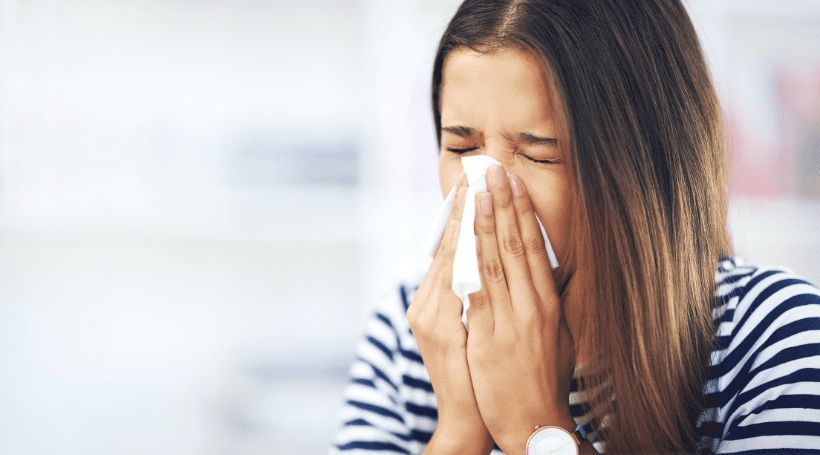We love spring. But we don’t love the seasonal allergies that come with it. Before you head out to buy a dozen boxes of tissues, check out some tips on how to find relief this allergy season, courtesy of Shivani Patel, a nurse practitioner at Jefferson Primary & Specialty Care in Delran.
How to know it’s allergies
Cold season, allergy season. They do overlap a bit, so how can you tell what you’re suffering from? It’s all in the symptoms, says Patel.
“The two do overlap, especially when in the mornings the temperature is in the 40’s and then in the evening it’s in the 70’s,” she says. “And the symptoms are similar, but the two that are different are cough and fever. So if you have either of those, it’s not allergies, and it could be bronchitis, sinusitis, Covid or even RSV.”
Check your meds
Allergy medications can be a lifesaver, but they can also come with side effects. It’s important to be aware of just what those are (and prepared to handle them), says Patel.
“There are many varieties of allergy medications to choose from, both intranasal and pills,” she says. “If you choose to take pills, they’re going to affect your whole body, where the nasal sprays will only affect your nose. The big side effect you want to look at is drowsiness, and that’s why it’s usually best to take those meds at night, especially if you’re over 60.”
Use a nasal spray the right way
If you go the nasal spray route, that doesn’t mean you’re completely off the hook. Instead of looking out for side effects, you’ll have to pay attention to how long you’re using it for, Patel says. “You should use the spray for 3 to 5 days, and you will usually feel the effects between 12 to 24 hours after your first dose,” she says. “If you feel you still need to use it after 5 days, try the pills or talk to your doctor.”
Patel also recommends using a saline rinse (in your nose) as a moisturizer while you use the nasal spray, since the spray can dry out your nose.
Rinse your sinuses
Speaking of saline rinse, Patel says that method can be helpful whether you’re using a nasal spray or the pills. “It’s similar to saltwater, and when you use it, you’re moisturizing your nasal mucosa, so stuff will come out,” she says. “It both clears congestion and moisturizes.”
Talk to your doctor
You might be thinking, allergies are just a part of life at this point. But that doesn’t always have to be the case. There’s another solution you can try in addition to picking up your go-to allergy medication, Patel says, and that’s talking to your doctor.
They’ll most likely start with a series of questions, and maybe do a test or 2. “It’s so that they can find the cause,” Patel says. “Finding the cause of your allergies could help you avoid them. For instance, if you know your symptoms come up in March or April while working in your yard, you could start wearing a mask while you’re out there or start taking medication leading up to that time.”










